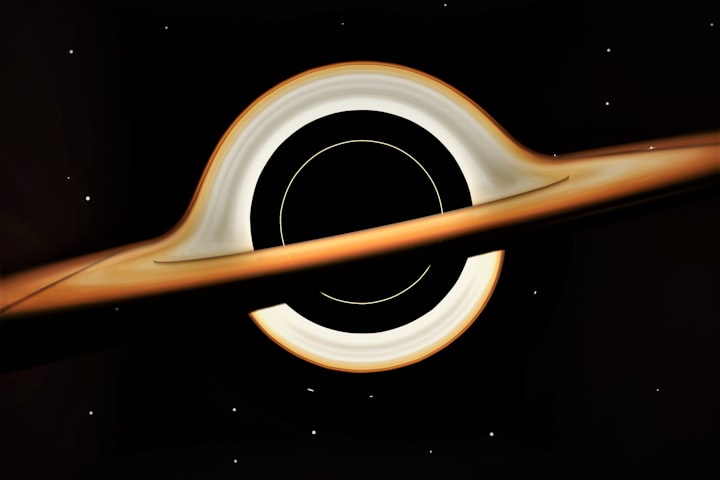Can black hole be destroyed?
Black holes are very scary
- Hawking radiation: Black holes emit radiation and lose mass over time, but very slowly. Some primordial black holes might explode faster, but no evidence yet.
- External attacks: Black holes cannot be destroyed by throwing or bombarding anything at them. This could create more mass, energy, or even a naked singularity.
- Natural decay: Black holes might decay due to quantum gravity effects, such as quantum tunneling or quantum foam. These are speculative and unconfirmed theories.
Black holes are very cool and weird things in space. They have so much gravity that nothing can get out of them, not even light. They are made when big stars die, or when a lot of stuff gets squished together.
There are different kinds of black holes, depending on how big they are and how they were made. For example, some black holes are left over from dead stars, some black holes are super big and live in the middle of galaxies, and some black holes might have been there since the beginning of everything.
Black holes are very scary, because they can eat anything that comes near them, and they can mess up space and time. But can we get rid of black holes? Can we make them go away, or will they be here forever? Let’s find out.
Hawking radiation One smart guy named Stephen Hawking found out something amazing about black holes in the 1970s. He said that black holes are not totally black, but they can give off some heat and light because of some weird stuff that happens near the edge of a black hole.
This heat and light is called Hawking radiation, and it makes black holes lose some of their weight and power over time. The smaller and hotter a black hole is, the quicker it goes away. But for most black holes, this takes a very long time, and they would last longer than everything else.

Some people think that maybe some very small black holes, that might have been made when everything started, could go away faster and make a big boom. But we don’t know for sure if this is true.
External attacks Another way to try to get rid of black holes is to hit them with something or blast them with energy. But none of these things would work, and some of them could make things worse. For example, if we tried to blow up a black hole with a bomb, we would just make it bigger and stronger.
If we tried to throw something that is the opposite of a black hole at it, they would just cancel each other out and make more heat and light that the black hole would eat. If we tried to feed a black hole too much stuff or make it spin too fast, we could make something even worse, like a point of no size and no shape that we can see. This would break the rules of nature, and make things very confusing and wrong.
Natural decay Another way that black holes might go away is because of something we don’t understand yet, called quantum gravity. Quantum gravity is about how the smallest things and the biggest things work together, and we don’t have a good way to explain it yet.

But some people have some ideas, like loop quantum gravity or string theory, that say that black holes might not be stable, and could go away by doing things like jumping through a hole or popping like bubbles. Jumping through a hole is when something can go through something else that it normally can’t, like the edge of a black hole.
Popping like bubbles is when space and time are changing all the time at the smallest level, and black holes could appear and disappear. These ideas are not sure or proven, and they could change everything we know about black holes and the universe.
In this article, we have tried to explain the possible ways to get rid of black holes, and how hard or easy they are. We hope you enjoyed it and learned something new. 😊

How does Hawking radiation affect the temperature and size of a black hole?
Hawking radiation is the heat and light that a black hole gives off because of some weird stuff that happens near its edge. It makes a black hole lose some of its weight and power over time. The smaller and hotter a black hole is, the quicker it goes away.
This means that Hawking radiation affects the temperature and size of a black hole in opposite ways. As a black hole loses mass, it becomes smaller, but also hotter. As it becomes hotter, it emits more radiation, which makes it lose more mass, and so on.
This creates a feedback loop that makes a black hole evaporate faster and faster, until it disappears completely. However, for most black holes, this process is extremely slow, and they would take longer than the age of the universe to disappear. Only very small black holes, such as the ones that might have been made when everything started, could evaporate faster and produce a big boom.

What are the advantages and disadvantages of using different types of telescopes to study black holes?
Black holes are very hard to study, because they do not let any light out. However, we can still learn about them by looking at the things around them, such as the gas, dust, stars, and light that they affect. To do this, we need different types of telescopes that can detect different kinds of radiation, such as radio waves, infrared, visible light, ultraviolet, X-rays, and gamma rays.
Each type of telescope has its own advantages and disadvantages. For example, radio telescopes can see through dust and clouds, and can make very detailed images of the jets and disks of black holes. However, they are very large and expensive, and they need to work together with other radio telescopes to get the best results. Infrared telescopes can see the heat from the black holes and their surroundings, and can also see through dust and clouds.
However, they are affected by the heat and light from the Earth and the Sun, and they need to be very cold and high up to work well. Visible light telescopes can see the stars and galaxies that host black holes, and can also measure the speed and distance of the objects around them.
However, they are limited by the brightness and resolution of the images, and they cannot see through dust and clouds. Ultraviolet, X-ray, and gamma ray telescopes can see the high-energy radiation from the hot gas and matter near the black holes, and can also measure the temperature and pressure of the environment. However, they are blocked by the Earth’s atmosphere, and they need to be in space to work. They are also very sensitive and fragile, and they need a lot of protection and maintenance.

What are some of the challenges and limitations of detecting and measuring primordial black holes?
Primordial black holes are very small and old black holes that might have been made when everything started. They are very interesting, because they could tell us more about the beginning of the universe, and they could also be a type of dark matter, which is the mysterious stuff that makes up most of the universe. However, they are also very hard to detect and measure, because they are very rare and faint. Some of the challenges and limitations of finding and studying them are:
- We do not know how many or how big they are, or where they are. We only have some guesses based on some theories and models, but they are not very certain or consistent.
- We do not have a direct way to see them, because they do not emit any light or radiation. We can only try to see their effects on the things around them, such as the gravity, the lensing, or the evaporation.
- We do not have a reliable way to measure them, because they are very small and fast. We can only try to measure their mass and speed by looking at how they affect the things around them, such as the stars, the gas, or the light.
- We do not have a lot of data or evidence to support or reject them. We only have some hints or clues from some observations or experiments, but they are not very clear or convincing.
About the Creator
Yusuf Alam
Crafting Words into Amazing Stories | Freelance Copywriter | Turning Ideas into Impact







Comments (1)
Outstanding! Awesome story,